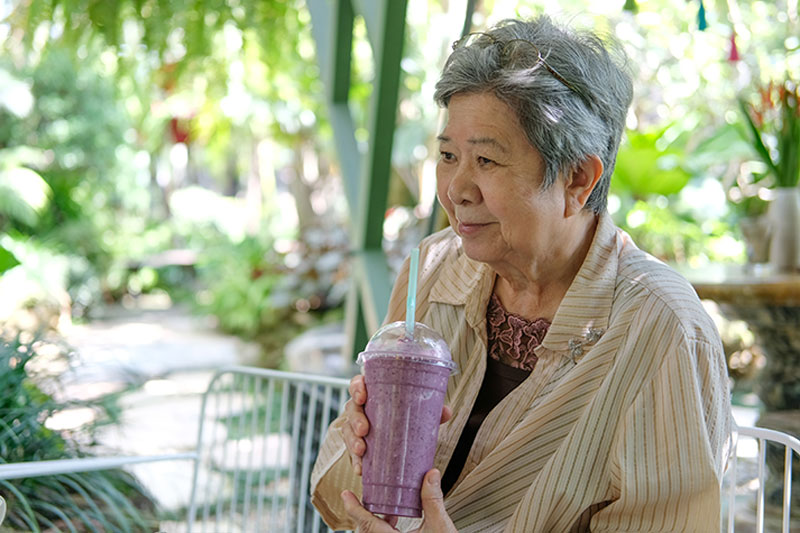
Creating a Safer Home Environment for Seniors with In-Home Care in Windsor As our loved ones age, ensuring their safety becomes a top priority. With the help of in-home senior care services from Amy's Helping Hands in Windsor, Ontario, you can create a safer and more secure home environment for your senior family members. In this article, we will discuss how our in-home senior care services can contribute to a safer living space for your elderly loved ones. How Senior Home Care in Windsor from Amy's Helping Hands Can Help Fall Prevention Falls are a common concern for seniors and can lead to serious injuries. At Amy's Helping Hands, our caregivers are trained to identify potential fall hazards in the home, such as loose rugs or cluttered walkways. We take proactive measures to make your loved one's home fall-proof, reducing the risk of accidents and injuries. Medication Management Proper medication management is crucial for seniors with multiple prescriptions. Our caregivers can ensure that medications are taken at the correct times and in the…

How to Best Manage Dysphagia: A Guide for Care: With the summer heat, nothing is better than a nice cool drink to cool you down. A senior with dysphagia, this simple pleasure could be dangerous. Dysphagia or trouble with swallowing impacts many of our seniors, due to weakened mouth and or throat muscles. Dysphagia can be caused by Cancer, Alzheimer’s, MS or a Stroke. Learn more about how to manage dysphagia in our information guide. Symptoms of Dysphagia Include: -Drooling -Coughing, choking or gagging when drinking, eating or taking medications. - A gurgling sound in a seniors voice after eating or drinking. Great questions to ask if you suspect a senior member of the family has dysphagia, and consult a medical practitioner right away for further guidance. -Are you choking or coughing when trying to eat or drink? - Are you experiencing regular issues with food “going down the pipe”? - Is food getting caught in your throat? - Is it taking you longer to eat than it used to? - Are you losing weight? As a caregiver taking care of…

Dehydration in Seniors During the summer months, high temperatures and humidity can lead to an increased risk of dehydration. It is important to ensure that sufficient fluids are consumed to prevent dehydration and to maintain good health. Why Seniors Are at Risk Seniors are more susceptible to fluid and electrolyte imbalances. As our body ages, the ability to conserve water is decreased. With less conserved water in our bodies our seniors have more difficulty adapting to fluctuating temperatures. As we age our sense of thirst also diminishes. By the time someone actually feels thirsty, essential fluids could already be extremely low. Signs and Symptoms of Dehydration As a caregiver for our seniors it is of the utmost importance to be mindful regarding the signs and symptoms of dehydration and to have open communication with a healthcare professional if you see red flags that could indicate complications from fluid loss. As a caregiver it is important to pick up the early signs that a senior needs to increase…

Summer Activities for Seniors and Caregivers Being outside in the beautiful warm summer temperatures does not have to end for our seniors and caregivers. As seniors, it can be challenging to find activities that are both enjoyable and suitable for their needs and abilities. With some creative planning it is possible. It will be beneficial to switch up the routine and to get out of the house. The Benefits of Getting outside There are a lot of advantages for heading outside, even if for a short period of time to soak up the sun. Soaking up some sunshine is a great source of Vitamin D which helps for a healthy brain, bones and muscles. Getting out of the house also helps seniors interact and socialize. It can be beneficial for their mental and emotional well-being. Ideas for Outdoor activities When it comes to picking activities for your loved ones, focus on their hobbies, interests and what they used to enjoy doing or even try something new. Have a couple of suggestions prepared to choose from and heat outside and enjoy the…

Summer Heat - Things to watch for with Senior's With Summer heat now upon us, we need to make sure everyone is safe. Too much heat is not good for our seniors. Seniors who are older or have health problems are at a higher risk. It is important to get relief from the heat quickly. If not, you may feel confused or faint. Our seniors do have a harder time dealing with the humidity and heat, humanity does play a factor. The temperature both inside and outside of the house does not have to reach 100°F (38°C) to put our seniors at risk for a heat-related illness. Such as: headaches, confusion, dizziness or nausea. Heat Syncope- Is sudden dizziness that could happen when you are active in the warmer weather. If you take Heart medication (beta blocker) or are not used to the heat, you have a higher risk of fainting. Resting in a cooler place or shade, elevating your legs and drinking plenty of cool water will help make the dizziness go away. Heat Cramps- Can become painful with tightening of the muscles in your stomach, arms or…

What You Need to Know About Beverage Thickeners for Swallowing Disorders Unless you have a swallowing order, you most likely have not given much thought to the different textures and consistencies of the liquids in your diet. When you’re feeling thirsty, nothing hits the spot like an ice-cold glass of water. On a hot summer day, you might crave a refreshing milkshake. And when you are recuperating from the flu, a warm bowl of soup is just what you need. But if you’re using beverage thickeners for swallowing disorders, you have to learn to adjust your thinking and get used to a whole new way to hydrate. Thickened liquids make it difficult to feel as though your thirst is quenched, and change your ability to enjoy things such as that first hot cup of tea in the morning, or a glass of your favorite soda at lunchtime. Try these suggestions to help make thickened beverages more palatable. What Are the Top Beverage Thickeners? It comes down to the person’s individual preference, and it may take some experimentation to determine which works best. The physician…




















